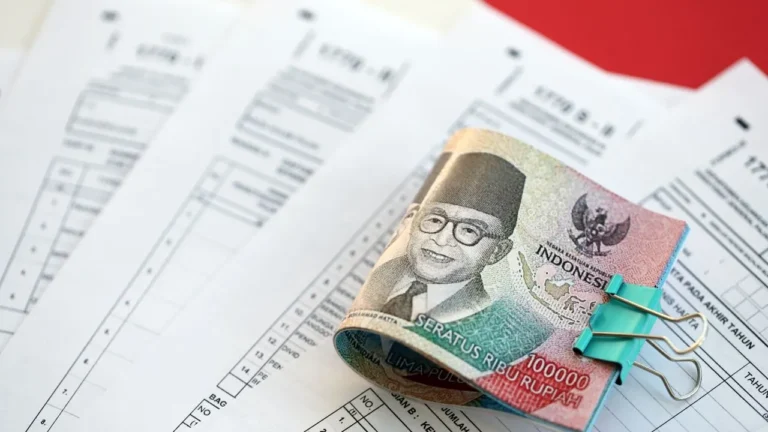Table of Contents
ToggleFor businesses and foreign investors aiming to set up or maintain operations in Bali, gaining a solid grasp of the local tax and accounting system is essential. When establishing new enterprises or dealing with ongoing fiscal responsibilities, it’s crucial to comprehend the intricacies of Bali’s tax regulations. This guide delivers vital information on the process of tax declaration in Bali, shedding light on compliance and reporting.
- PT PMAs in Bali must navigate tax obligations, including Corporate Income Tax, VAT, withholding tax, and social security contributions.
- Tax reporting for PT PMAs is guided by a self-assessment system with specified deadlines for various tax submissions, such as annual Corporate Income Tax by April 30th and monthly tax declarations.
- Non-compliance with tax regulations can result in severe penalties ranging from financial fines to imprisonment, highlighting the importance of accurate and timely tax reporting, documentation, and strategic planning to avoid punitive measures.
Taxes and Reporting Applicable in Indonesia

Accurate bookkeeping serves as the foundation for a clear financial perspective, ensuring adherence to local regulations and accounting requirements. PT PMA have to maintain financial reporting and accounting. Non-compliance can lead to serious implications for both businesses and individuals.
Establishing a business in Bali requires familiarity with local and national tax responsibilities. Here are the most common tax and obligations for a company in Bali and all province in Indonesia.
Monthly Reporting
Corporate Income Tax
Companies based in Indonesia must pay corporate income tax, which is applicable to their global income irrespective of where it is earned. The rate for this tax has been progressively reduced from 25% previously to 22% in the year 2021 and decreased to 20% by the year 2022, calculated on the net earnings of the company.
Businesses with an annual revenue under IDR 50 billion get a tax facility with a rate from 11 to 13% calculated on the net profit. New company have a tax facility drug 3 years with a taxable income at 0.5% if the income is under 4.8 Billion IDR. The company has to pay this tax every month. The payment obligation require that any taxes due are settled by the 10th following each month during which income was generated.
Withholding Tax on expenses and Salaries
Having income or not a company has to pay the withholding tax every month related to invoices the company pays to a service provider. The tax rate is depending on the type of service.
Companies need to report the income tax of their employee and pay the tax on their behalf.
Valued Added Tax
Companies need to pay the VAT collected each month if they are VAT collector. A company with an income above 4.8 Billion IDR becomes VAT collector. The current VAT rate in Indonesia in 2024 is 11%. The VAT is due by the 20th of the month following the collection.
Local Tax
Each province are also in charge to collect some taxes and have different applicable tax rate. A spa or a property rented on AirBnb are taxed at a different rate depending on the location of the business. The company needs to pay every month the tax to the local tax office. A local tax of 10% is applied on daily rental such as AirBnb while some spa can pay tax at 15%.
BPJS (Social Security)
Companies have to declare at least two local employees at the social security. The monthly payment is based on the Gross salary of the employee.
Read Also: Corporate Income Tax in Indonesia
Quarter Report (LKPM)
Besides the monthly report and tax, each PT PMA has to report quarterly to the BKPM. The company has to upload their report (LKPM) in OSS. The report contains information about the assets, liabilities, employees, social impact of the company. This report is mandatory and avoiding this reporting can lead to sanctions such as the closure of the company.
Annual Corporate Income Tax Reporting
The annual reporting (CIT) is a vital element in the taxation protocol for PT PMAs operating in Bali, Lombok, Jakarta or anywhere in Indonesia. The company has to report their annual income tax between January and end of April following the fiscal year. The company needs to present its annual financial statements during this period.
In the realm of tax and accounting in Bali, the fixed Corporate Income Tax (CIT) rate applies to taxable income, including capital gains from property sales. All PT PMAs must strictly adhere to Indonesian tax regulations when filing their annual returns to ensure compliance and avoid potential penalties. In order to simplify compliance, the Tax Office provides an electronic platform allowing taxpayers such as PT PMAs, ensuring accurate and timely submission of these critical documents.
Annual Tax Declaration for the director and KITAS holder
The director of the company has to declare its personal tax every year before the end of March following the fiscal year. If the director fails to declare its tax, the company is not able to declare its tax and no amendment can be also done on the company. This situation happens often and some company are in the incapacity to make changes to operate.
Read Also: Employment Contracts in Indonesia: A Comprehensive Overview
Never worry about taxes and accounting again
Dealing with finances, taxes, and accounting can feel overwhelming, especially as a foreigner in Indonesia. Let us guide you through processes like tax calculation, payroll, personal or corporate tax, short-term investments, balance sheet analysis and much more.
With ILA by your side, nothing can go wrong. Schedule a free consultation today or learn more about our tax and accounting services.
Tax Penalties for non compliance

Failing to adhere to tax regulations can result in significant fines. Depending on the type of tax involved, penalties for delayed tax reporting or paying less than what is due range from IDR 100,000 up to IDR 1,000,000. If a taxpayer’s appeal fails, there is an extra fine worth half to the full amount of the unpaid taxes.
In the context of tax and accounting in Bali, the Directorate General of Taxes (DGT) holds authority to issue notices for tax assessments when taxpayers fail to settle taxable dues or respond to filing notices. Situations such as delays in issuing VAT invoices, non-compliance with invoicing standards, or failure to provide them entirely can lead to a 2% additional charge. Furthermore, late payments incur penalties of 2% monthly, which may accumulate for up to two years, emphasizing the importance of timely compliance with local tax regulations.
Submitting incorrect information within your return or not submitting one might lead you to incarceration spanning three months up to an entire year. Alternatively, hefty fines could also incur reaching heights twice that of evaded taxes sum totals. In instances involving fraudulent activities including but not limited embezzlement schemes plus deficiencies related to bookkeeping practices, potential outcomes include longer prison terms alongside increased monetary punishments emphasizing the need for meticulous adherence when it comes to compliance matters concerning taxation laws and mandates.
PT PMA Maintenance

Active or inactive companies have to respect their tax and report obligations. Maintaining compliance with tax and accounting in Bali is mandatory, even for non-active companies. Directors must still submit monthly reports, as having no income does not exempt them from reporting obligations. For example, when a company pays an invoice to a contractor, it must also report the corresponding tax for the service provider to adhere to local regulations.
Bookkeeping and Documentation
Accurate tax and accounting in Bali is essential for any business to maintain proper financial records and ensure compliance. Bookkeeping plays a crucial role in documenting all expenses and incomes of the company. Accounting also supports directors and shareholders in analyzing the company’s financial health. After establishing the business, directors must secure an EFIN (Electronic Filing Identification Number) to meet Indonesia’s tax filing requirements efficiently.
This number is necessary to log into the Indonesian Online Tax Declaration.
The director needs to go to the tax office to collect its personal and corporate EFIN Number. The NPWP is a different number.
Read Also: Tax Planning: How to Optimise Taxation in Indonesia
Outsourcing Tax Declaration Services in Bali

Engaging the expertise of foreign companies specializing in tax declaration such ILA can help PMA to stay compliant and help business owners to analyse their company health. The advantages encompassed by outsourcing these crucial functions include:
- Conservation of time
- Reduction in expenses instead to hire an in-house accountant
- Expertise at hand for tax declaration (tax consultant is different from an accountant)
- Tax reporting and Financial ratio to help the business owner to take the right decisions
Providers focusing on tax declarations commits to excellence, tailoring their offerings meticulously to align with unique company needs. Companies from abroad opting for collaborations with organizations such as ILA Global Consulting.
Frequently Asked Questions
What accounting standards in Indonesia?
In Indonesia, the financial accounting regulations consist of Indonesian Financial Accounting Standards (SAK). Encompassing both the Statements of Financial Accounting Standards (PSAK) and Interpretation of Financial Accounting Standards (ISAK). DSAK IAI and DSAS IAI issue it respectively. There are financial reporting rules provided by the capital market authority.
Should I declare my tax even I do not have income?
In Bali, PT PMA still need to report 0 even if there is no revenue or taxable income. Companies still need to pay every month the withholding tax on invoice they pay to a service provider.
Can I wait to have an activity before making reporting?
Companies with no activity needs to report their LKPM report every quarter and declare their tax every year. Indonesian authority can stop a company if the PT PMA fails to report
Contact us or book a meeting with us if to know more how to declare your tax. We can also accompany you with your bookkeeping.























